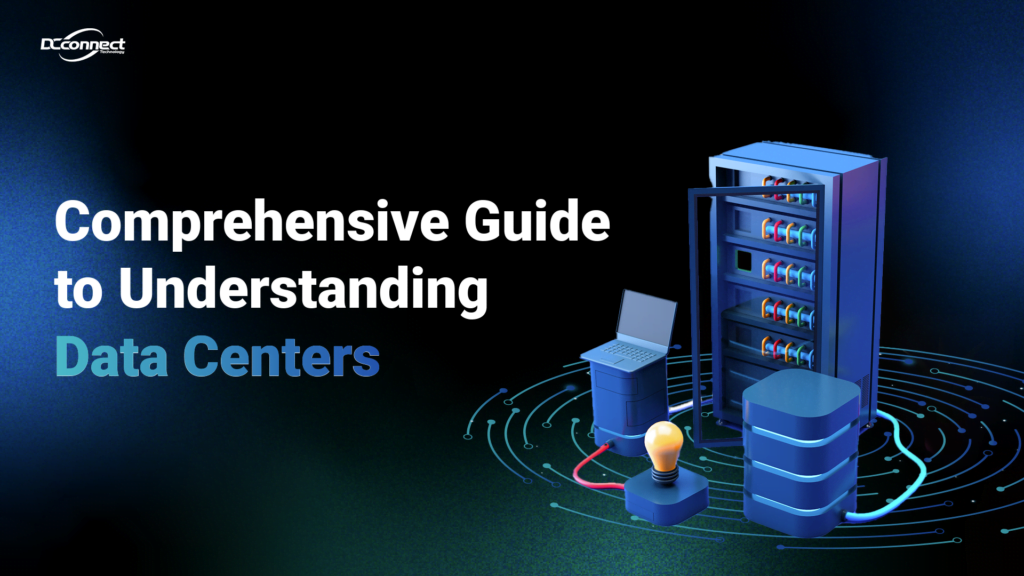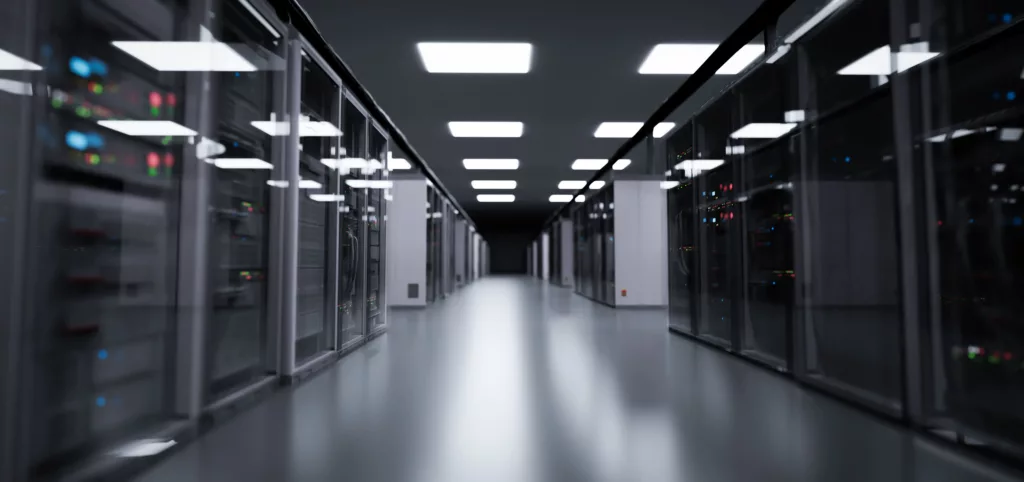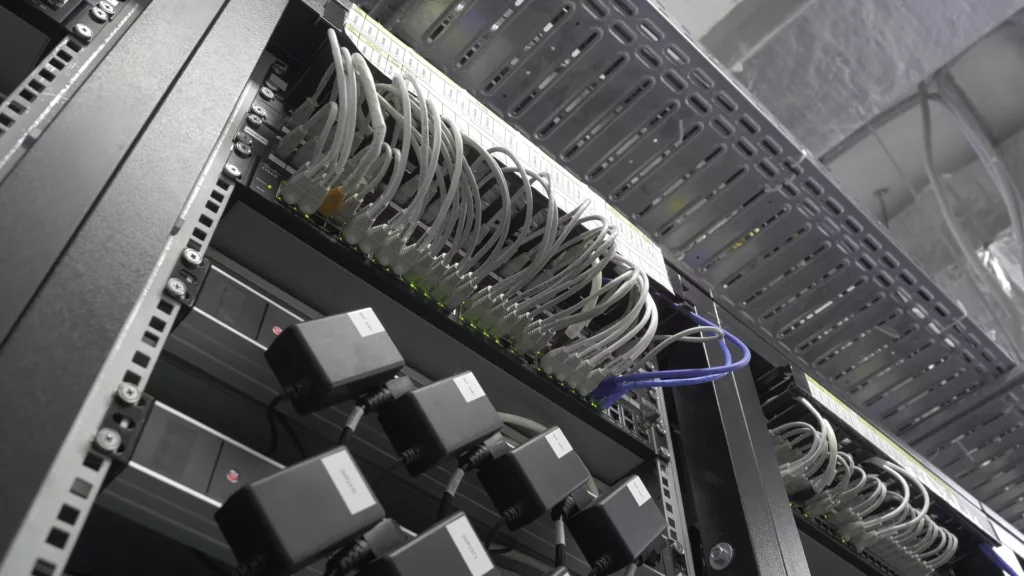
You might not know them by name, but they’re the invisible giants behind everything we do online. They store and process the massive amounts of data that fuel our digital lives, from sending emails to streaming movies to powering online businesses. They are called data centers.
Think of them as the powerhouses of the digital world. They’re the engine rooms that keep everything running smoothly, ensuring that data is available when and where it’s needed. And as our reliance on technology continues to grow, so too does the demand for these vital facilities.
For businesses, data centers are more than just storage units. They’re essential tools that enable efficient operations, smooth communication, and a competitive edge. By providing the infrastructure for data storage, processing, and transmission, data centers help businesses stay ahead of the curve and thrive in the digital age.
Types of Data Centers

- Colocation Data Centers
Colocation data centers are facilities that rent out space to multiple companies for housing their servers and other hardware. These data centers provide physical space, power, cooling, and security, while the companies provide their own IT infrastructure. Colocation data centers offer several benefits, including access to advanced infrastructure without significant upfront investment, scalability, as businesses can rent additional space as needed, and redundant power and connectivity, ensuring high reliability
- Enterprise Data Centers
Enterprise data centers are large-scale facilities owned and operated by individual companies to support their IT infrastructure. They provide complete control over the IT environment and can be customized to meet specific business needs, making them more cost-effective for large-scale operations. These data centers are typically on-premises or off-premises, housing physical computing equipment like servers, network systems, and storage devices, as well as supporting infrastructure like power, cooling, and environmental monitoring systems.
- Edge Data Centers
Edge data centers offer several advantages, including low-latency access for end-users, improved performance for applications like video streaming and online gaming, and reduced reliance on backbone and regional data centers. These centers are strategically positioned at the periphery of larger networks, processing data close to the end user, which results in faster service, increased bandwidth, and enhanced network resilience. They also contribute to cost-effectiveness and improved IT reliability and security for businesses. The use of edge data centers is particularly beneficial for organizations that require low-latency access, such as those working with the Internet of Things (IoT), big data, cloud, and streaming services.
- Telecommunications Data Centers
A telecom data center is a specialized facility owned and operated by a telecom or service provider company. It is designed to house the critical infrastructure that powers digital communication networks. Telecom data centers offer several advantages, including stable and dependable network performance, strong security for important data and infrastructure, easy adjustment to new demands and emerging technologies, cost savings on operations, and minimized environmental impact. Telecom data centers differ from IT data centers as they are responsible for managing network resources, such as vRAN and 5G packet core, while IT data centers are responsible for the IT applications used. Telecom data centers offer a variety of services in an environment that meets the requirements for availability, scalability, security, and performance. The services/applications offered by most telecom data centers include mobile services, cloud services, and driving content delivery.
Every type of data center has its own set of advantages and challenges. Selecting the most suitable option for your business relies on your specific requirements. Whether you decide to construct and manage your data center, rent space in a colocation facility, or utilize the flexibility of the cloud, it’s essential to carefully consider each choice and ensure it aligns with your long-term business objectives.
Data Center Interconnection

To connect each data center, there are several options available. One common method is to establish a dedicated private network, such as a Virtual Private Network (VPN), between the data centers. This allows for secure and reliable communication between the different locations. Another approach is to utilize a Wide Area Network (WAN) infrastructure, which enables data centers to connect over long distances. This can be achieved through leased lines, MPLS (Multiprotocol Label Switching) networks, or software-defined WAN (SD-WAN) solutions. Additionally, organizations can leverage cloud-based services and technologies, such as cloud interconnects or direct connections, to establish connectivity between their data centers. These methods ensure efficient and seamless data transmission, enabling effective collaboration and resource sharing across the distributed infrastructure.
DCConnect offers Data Center Interconnect (DCI) services that can be provided as Ethernet Private Line (EPL) or Ethernet Virtual Private Line (EVPL) services, with bandwidth options ranging from 2Mbps to 10Gbps. The service is delivered to the customer via the standard trunk port (802.1Q), at either a 1GigE or 10GigE port. For inter-carrier connections and E-Access, SD-DCI offers an alternative Network-to-Network Interface, QinQ trunk port (802.1ad). This involves setting up at least one NNI connection between providers’ aggregation switches, utilizing VLAN implementation. DCConnect also supports API to run Inter Carrier Orchestration Carrier Ethernet Service. Through this API gateway, you can manage and order ports, clouds, and DCI in your network by the API resources provided.
Exploring the world of data center interconnection, DCConnect Global offers a comprehensive solution with its DC Gateway. This innovative service facilitates automated data center interconnections with global coverage, reaching more than 6.000 endpoints worldwide.
For a more detailed understanding of data center interconnection and reliable networking solutions, you can:
Website: https://www.dcconnectglobal.com/data-center-interconection/
Email: alliance@dcconnectglobal.com
Author:
Berlian, Social Media Managing
DCConnect Global
www.dcconnectglobal.com



